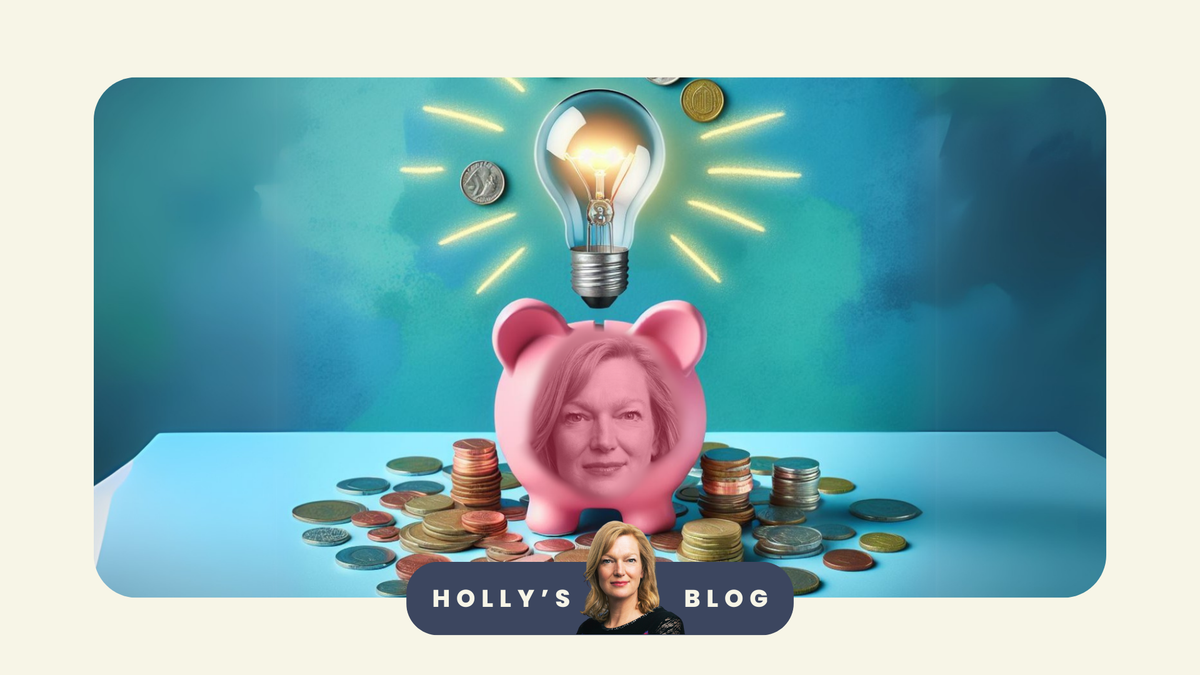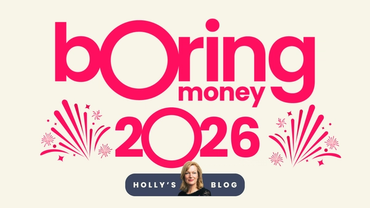Holly's 10 Money Saving Tips
By Holly Mackay, Founder & CEO
10 Jan, 2025

Last week I wrote about investment markets and what to expect and look out for in 2025. However, as much as we think about how we can (hopefully) make money, our overall finances could be more impacted by how we actually save money. So, here are 10 ideas from me which I think could save every reader some money in 2025 and get you to the end of the year with more in your pocket.
We’ll start with the easy bits and gradually get a bit more hardcore/technical!
1. Review direct debits, standing orders and subscriptions
This is an easy one. Check these on your bank app or website. Do you know what they are all for? Do you still want the service? It’s also worth heading to Settings in your smartphone, clicking on your name or AppleID and checking your subscriptions.
2. Abandon your online shopping basket – at least for a day!
This is the commercial equivalent of treat ‘em mean, keen ‘em keen. Leave items in an online shopping basket for a day to see if the retailer will send you a discount code or offer. This discipline also helps avoid impulse buys which you can live without. I also Google discount codes for the retailer in question. Amazing what pops up sometimes!
3. Council Tax – are you over-paying?
Have your circumstances changed? Divorced or separated – have you claimed the single person’s discount? Are you in the right band? To work this out, find out what band your neighbours are on the GOV.UK website (it’s OK, there’s a link, you don’t have to engineer a torturous conversation over the fence) and then look at what your property was worth in 1991. Money Saving Expert have a helpful guide too.
4. Do you have cash in your current account, which is making your bank a lot of money, not you?
This is a biggie where our hatred of financial admin costs us money. Interest rates are still fairly high and markets only forecast two reductions this year. There is also a current hiatus in bond markets which mean that long-term borrowing is at super high levels. Moving our money to top-paying accounts can be a fairly pain-free way to make more.
For those readers with a Hargreaves Lansdown account, I think their Active Savings offer is their best-kept secret, enabling super easy access to lots of great cash deals. Alternatively, Close Brothers have an easy access cash account paying 4.7% for sums of £10,000 or more, or Chip is an app with limited withdrawals each year, but pays 4.85%. And Plum is an app which has a cash ISA paying 5.01%.
5. Check your Income Tax code
Quite literally millions of tax codes are wrong every year and it's up to us – not your employer or the taxman – to check it. It’s particularly worth doing if you have changed jobs, earn income from multiple sources, have rental property or have recently retired. If you're overpaying, checking your code can get you a nice rebate. (Also – whilst we’re on the topic of tax – don’t forget the self-assessment deadline of 31 January. This article is a helpful guide for newbies to this process).
6. Do you have children and do you earn more than £60,000?
The rules say that if you or your partner earn more than £60,000, you'll need to pay back some of your child benefit, up to £80,000 when you lose it all. If you live with a partner and you both earn more than £60,000, the higher earner will need to pay the charge.
But here’s the wheeze. If you earn say £85,000 and can afford to make a £10,000 pension contribution that year, your adjusted net income will fall beneath the upper limit, making you eligible for some child benefit. You can read more here.
7. Don’t pay more than you need to in admin fees for your ISAs and pensions
There are some pretty good deals around these days. For example, Fidelity and Hargreaves Lansdown don’t charge fees on Junior ISAs. Trading212 don’t charge fees for ISAs. Interactive Investor have low fixed fees making it compelling for larger pension accounts. iWeb charges no ISA admin fee and only £5 to trade. I could go on. Visit our comparison tables, put in the amount you have in an ISA or pension, and then sort the table by specific costs for your portfolio size. Food for thought.
8. Have you lost a pension?
At least 4.8 million pension pots are reportedly lost in the UK – that could mean that roughly 1 in 10 of you reading this has a forgotten stash somewhere. With an average of 9 jobs over our lives today, it’s not surprising. One place to start is the Government’s Pension Tracing Service. If you do have a trail of small iddy-biddy pensions in your wake, many firms now offer a consolidation service and do all the boring admin for you. Here’s three firms we think do this well.
9. Over 45? Gaps in your working life? Check state pension entitlement before 5 April deadline
You need a minimum of 35 years of National Insurance (NI) contributions to get the full state pension, tricky for those with career breaks, time out with the rugrats, or caring for parents. You can check your record or call the Pensions Service 0800 731 7898 if the Government Gateway brings you out in hives.
If you do have gaps, you can buy NI credits to boost your state pension income at a cost of £907.40 to fill a full year's gap in your record. And boost how much you get in your state pension. This is typically worth it if you live for at least 3-4 years after getting to state pension age. But – action alert – after 5 April 2025, individuals will only be able to claim for 6 years of NI credit, so it may be worth considering filling any extra gaps in your record now, as you can buy contributions going back as far as April 2006.
10. And finally – if you are retiring and planning to take a pension - don’t pay unnecessary tax
One from Jonathan Watts-Lewy, director at Wealth At Work, who cautions: “Unfortunately, some people don’t realise that only the first 25% (up to a maximum of £268,275) of a defined contribution pension is tax-free, and the remaining 75% is taxed at the same rates as earned income. So, if they decide to take their pension as a cash lump sum, they may unwittingly become a higher rate taxpayer. It may be better for them to take smaller amounts each year from their pension, keeping within their tax bracket, and then top it up with withdrawals from other savings”.
These decisions can be tricky and financial advice can pay for itself many times over. Check out our financial advice hub for more on what to expect.
There you go. 10 tips to save some money – I hope there’s something in there for you!
The Boring Money team are working away to bring you our 2025 Best Buys in February. We have one Consumer Choice Award which recognises your favourite investment platform – please do leave your vote here – it’s much appreciated by the team and helps recognise who is doing a good job, day in day out.
Have a great but chilly weekend. I did have a lunchtime swim in the sea on Tuesday. Can’t quite face it today!
Holly

Want to get Holly's weekly blog straight to your inbox?
Already have an account? Login






